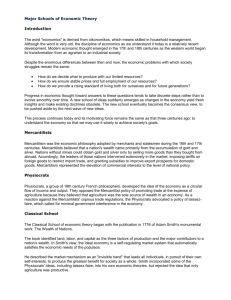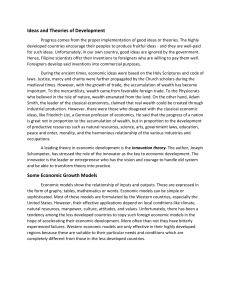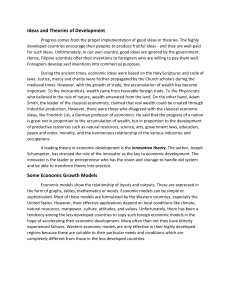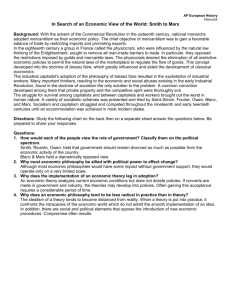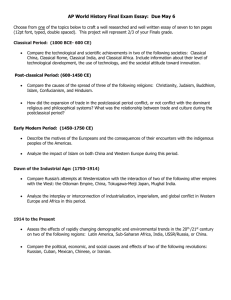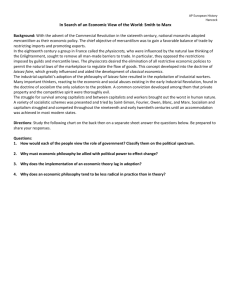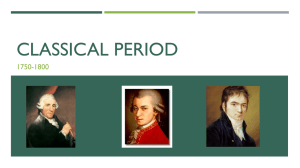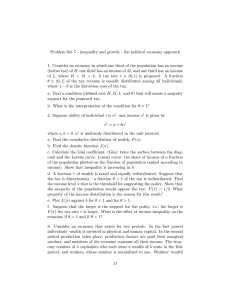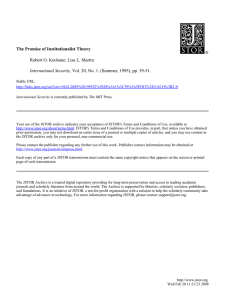Chapter 16: Economic Theory
advertisement
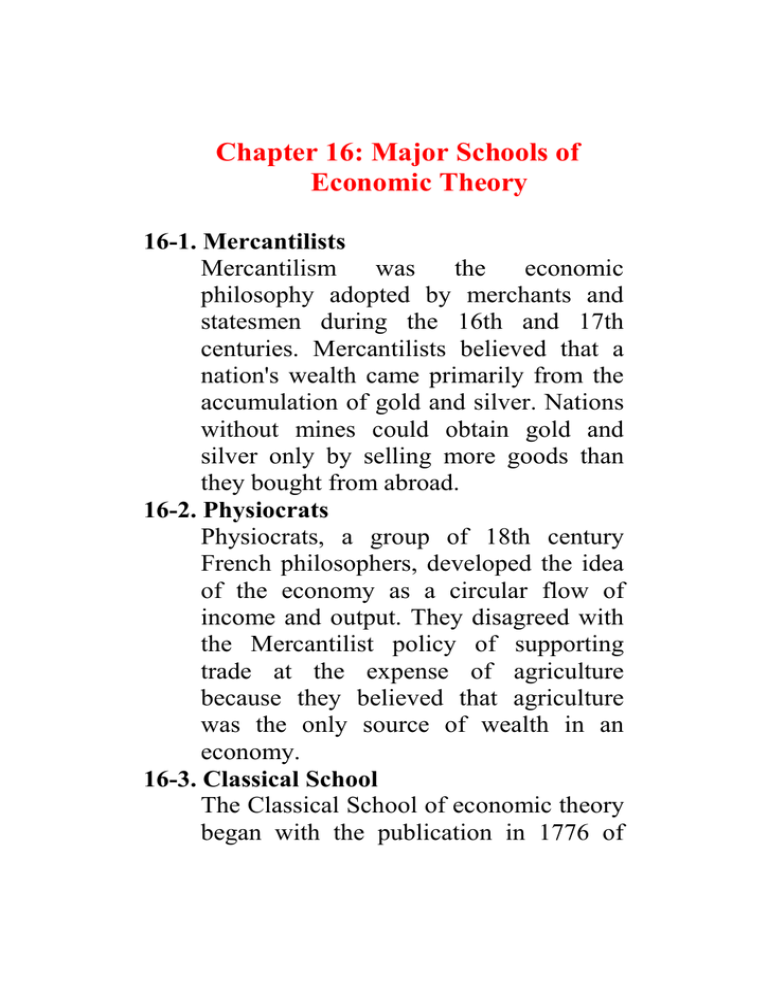
Chapter 16: Major Schools of Economic Theory 16-1. Mercantilists Mercantilism was the economic philosophy adopted by merchants and statesmen during the 16th and 17th centuries. Mercantilists believed that a nation's wealth came primarily from the accumulation of gold and silver. Nations without mines could obtain gold and silver only by selling more goods than they bought from abroad. 16-2. Physiocrats Physiocrats, a group of 18th century French philosophers, developed the idea of the economy as a circular flow of income and output. They disagreed with the Mercantilist policy of supporting trade at the expense of agriculture because they believed that agriculture was the only source of wealth in an economy. 16-3. Classical School The Classical School of economic theory began with the publication in 1776 of Adam Smith's famous work, The Wealth of Nations. The book identified land, labor, and capital as the three factors of production and the major contributors to a nation's wealth. Smith described the market mechanism as an "invisible hand" that leads all individuals, in pursuit of their own self-interests, to produce the greatest benefit for society as a whole. While Adam Smith emphasized the production of income, David Ricardo focused on the distribution of income among landowners, workers, and capitalists. Ricardo saw a conflict between landowners on the one hand and labor and capital on the other. 16-4. Marginalist School Classical economists theorized that prices are determined by the costs of production. Marginalist economists emphasized that prices also depend upon the level of demand, which in turn depends upon the amount of consumer satisfaction provided by individual goods and services. 16-5. Marxist School The Marxist School challenged the foundations of Classical theory. Writing during the mid-19th century, Karl Marx believed that capitalism in the end would destroy itself and be succeeded by a world without private property. He believed that the market system allows capitalists, the owners of machinery and factories, to exploit workers by denying them a fair share of what they produce. Marx predicted that capitalism would produce growing misery for workers as competition for profit led capitalists to adopt labor-saving machinery, creating a "reserve army of the unemployed" who would eventually rise up and seize the means of production. 16-6. Institutionalist School Institutionalist economists regard individual economic behavior as part of a larger social pattern influenced by current ways of living and modes of thought. They rejected the narrow Classical view that people are primarily motivated by economic self-interest. Opposing the laissez-faire attitude towards government's role in the economy, the Institutionalists called for government controls and social reform to bring about a more equal distribution of income.
